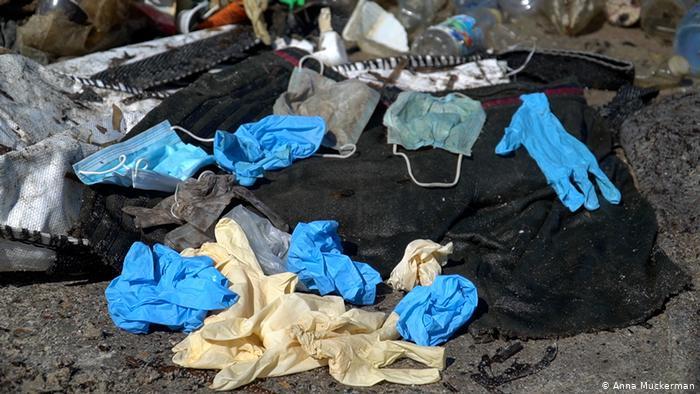Shomporko Online News Desk: Nearly eight million tonnes of plastic trash enter the oceans each year from all over the world, but Canadians are seeing an unusual jumble of masks and other personal protective equipment (PPE) kits washing up along the country’s shorelines for the first time in 27 years.
According to the Great Canadian Shoreline Cleanup’s annual “Dirty Dozen” 2020 report, over 15,000 volunteers cleaned over 41,000 kg of waste from Canadian beaches, with COVID-19-related materials among the items found.
“This is the first time that we’ve seen it recorded and sort of statistically significant numbers too,” according to Laura Hardman, leader of plastic-free oceans at Ocean Wise.
“We just need to remember that as a society, as a whole, that whatever we dispose of, whatever leaks out into our environment has implications.”
The organization didn’t have a category on its data cards last year to formally track the amount of PPE-related litter but has added one for 2021, given the situation.
“I would really, really be asking for people to think responsibly about their personal impacts and to think about not only how they are disposing of masks, but also how they are using them, how they are ensuring that they don’t get lost, that they don’t leak out into the world,” Hardman said.

While disposable masks may look like they are made of paper or natural fabric, they are manufactured using polymers that sometimes take decades or centuries to decompose.
“That’s an important consideration,” Dr. Shoshanah Jacobs, associate professor in the department of integrative biology at the University of Guelph, told Global News Thursday. “These are new sorts of pollutants that are being introduced into the environment… So, we don’t really know about how they’ll kind of spread around quite, quite yet.”
That does not, however, imply that public health should be jeopardized and that people should abandon masks and personal protective equipment. Jacobs remarked.
“However, clearly we could have anticipated the need to provide adequate disposal outlets and locations, as well as proper public messaging about how we handle these crucial health-saving equipment in order to avoid compromising the environment.”
“Obviously, if individuals are comfortable and able to use reusable masks, that’s a terrific thing,” Jacobs said, but he also stressed the importance of “supporting people” who aren’t, as well as counseling them on “proper disposal” of single-use masks.
Source_globalnews.ca











